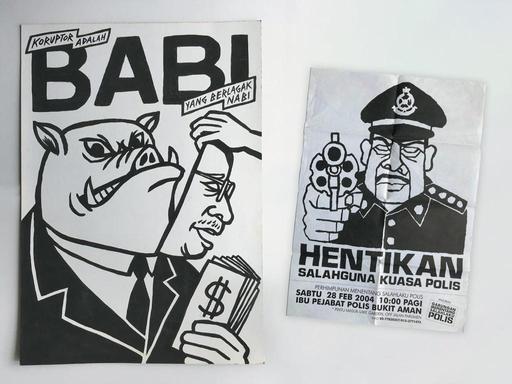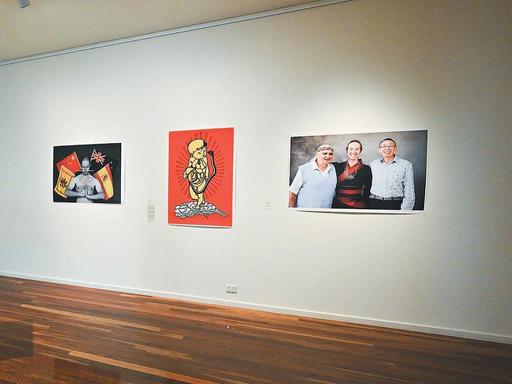when: 04 June 2022 | venue: Anzac Memorial | cost: Free | address: Southern end of Hyde Park, Sydney NSW 2000 | website: https://militaryhistorynsw.com.au/activities/next-lecture/
published: 04 Jun 2022, 5 min read
This showcased event has concluded.
Expired
Australia espouses adherence to the laws of armed conflict, and support for the institutions that monitor them. Australia has been an overt and enthusiastic supporter, and an 'early adopter', of most international treaties applicable to the law of armed conflict. Australia has firmly, but fairly, investigated and prosecuted the war crimes of our adversaries.
While Australia's record of compliance with the law of armed conflict is a good one, there are, from the Boer War through to the Vietnam War, indications that, in rare exceptions, Australian service members may have been involved in serious breaches of the laws of armed conflict, including the killing of non-combatants and persons hors de combat, including prisoners.
The case of the BVC illustrates an irregular unit, operating with autonomy and limited supervision, under the influence of a flawed but charismatic leader, in which practices for the treatment of prisoners that were inconsistent with formal and legal obligations became accepted by some, and in which reporting of contraventions of the customs of war was deterred. But it also illustrates the courage of Australians who were not prepared to tolerate this, and who by reporting their concerns to higher authorities triggered the inquiry that led to the courts-martial. The Rabaul looting cases demonstrate a willingness to investigate and prosecute conduct contrary to the law of armed conflict.
However, the Surafend incident represents an abject failure to hold Australian forces to account, not least by reason of a closely-bonded unit maintaining a code of silence. The operations against Japanese lifeboats and survivors after the Battle of the Bismarck Sea, is an illustration of strategic purpose being accepted as prevailing over any ambiguity about legality. However, there was no ambiguity about the killing of prisoners in New Guinea. Yet informal reports went uninvestigated, although Australia was at the forefront of holding the Japanese to account, albeit for much more extensive misconduct. There remain unresolved allegations of the killing of hors de combat personnel by Australians in Vietnam.
There are enduring themes, associated with these incidents, of disconnects between the law and formal orders on the one hand, and local practices on the other; of the influence of revenge and excessive zeal; and of a culture of non-inquiry, non-reporting, and silence.
Allegations of war crimes often emerge belatedly, for various reasons. The investigation and prosecution of serious war crimes, regardless of when they come to light, is important, not only because of the international law obligation to do so, but because they affect not only the individuals concerned, but also the nation's reputation and standing, and undermine morale and moral authority, which is part of our combat power.
The failure to deal with allegations and indicators as they begin to emerge and circulate is corrosive - it gives spurious allegations life, and serious allegations a degree of impunity. The consequences of not addressing such allegations as and when they eventually arise are measured in decades.
Content from UpNext.com.au. Please don't scrape website.
Australia espouses adherence to the laws of armed conflict, and support for the institutions that monitor them. Australia has been an overt and enthusiastic supporter, and an 'early adopter', of most international treaties applicable to the law of armed conflict. Australia has firmly, but fairly, investigated and prosecuted the war crimes of our adversaries.
While Australia's record of compliance with the law of armed conflict is a good one, there are, from the Boer War through to the Vietnam War, indications that, in rare exceptions, Australian service members may have been involved in serious breaches of the laws of armed conflict, including the killing of non-combatants and persons hors de combat, including prisoners.
The case of the BVC illustrates an irregular unit, operating with autonomy and limited supervision, under the influence of a flawed but charismatic leader, in which practices for the treatment of prisoners that were inconsistent with formal and legal obligations became accepted by some, and in which reporting of contraventions of the customs of war was deterred. But it also illustrates the courage of Australians who were not prepared to tolerate this, and who by reporting their concerns to higher authorities triggered the inquiry that led to the courts-martial. The Rabaul looting cases demonstrate a willingness to investigate and prosecute conduct contrary to the law of armed conflict.
However, the Surafend incident represents an abject failure to hold Australian forces to account, not least by reason of a closely-bonded unit maintaining a code of silence. The operations against Japanese lifeboats and survivors after the Battle of the Bismarck Sea, is an illustration of strategic purpose being accepted as prevailing over any ambiguity about legality. However, there was no ambiguity about the killing of prisoners in New Guinea. Yet informal reports went uninvestigated, although Australia was at the forefront of holding the Japanese to account, albeit for much more extensive misconduct. There remain unresolved allegations of the killing of hors de combat personnel by Australians in Vietnam.
There are enduring themes, associated with these incidents, of disconnects between the law and formal orders on the one hand, and local practices on the other; of the influence of revenge and excessive zeal; and of a culture of non-inquiry, non-reporting, and silence.
Allegations of war crimes often emerge belatedly, for various reasons. The investigation and prosecution of serious war crimes, regardless of when they come to light, is important, not only because of the international law obligation to do so, but because they affect not only the individuals concerned, but also the nation's reputation and standing, and undermine morale and moral authority, which is part of our combat power.
The failure to deal with allegations and indicators as they begin to emerge and circulate is corrosive - it gives spurious allegations life, and serious allegations a degree of impunity. The consequences of not addressing such allegations as and when they eventually arise are measured in decades.
Go see War crimes in Australian History: from Boer War to Vietnam 2022.

War crimes in Australian History: from Boer War to Vietnam 2022 is on 04 June 2022. See start and end times below. Conveniently located in Sydney. Call 0419698783 for details. Visit their website at https://militaryhistorynsw.com.au/activities/next-lecture/.
Are we missing something? Help us improve this article. Reach out to us.
Event Details
Are you looking for 'Things To Do' ideas?
Upnext Team
We love helping people
See recent events discovered by Upnext Team

Expired
Adelaide Tiny Home Expo 2023
Discover Tiny Houses and why they are taking Australia by storm. Tiny houses on and off wheels, luxury Airbnb models, m...

Expired
Drag Bingo & Cocktail Fun! 2023
Celebrate a Sunday afternoon with Bingo with a difference...Drag Bingo.Join hosts Fifi and Princess Laya as they perform...

Expired
Have You Eaten? 2023
Have You Eaten? is an immersive art exhibition that invites you to consider your perfect picnic, favourite foods, and co...

Expired
Punk Protest Propaganda 2023
Discover The Political Art of Fahmi Reza, a captivating exhibition at Nexus Gallery.Fahmi Reza, a self-taught Malaysian ...













